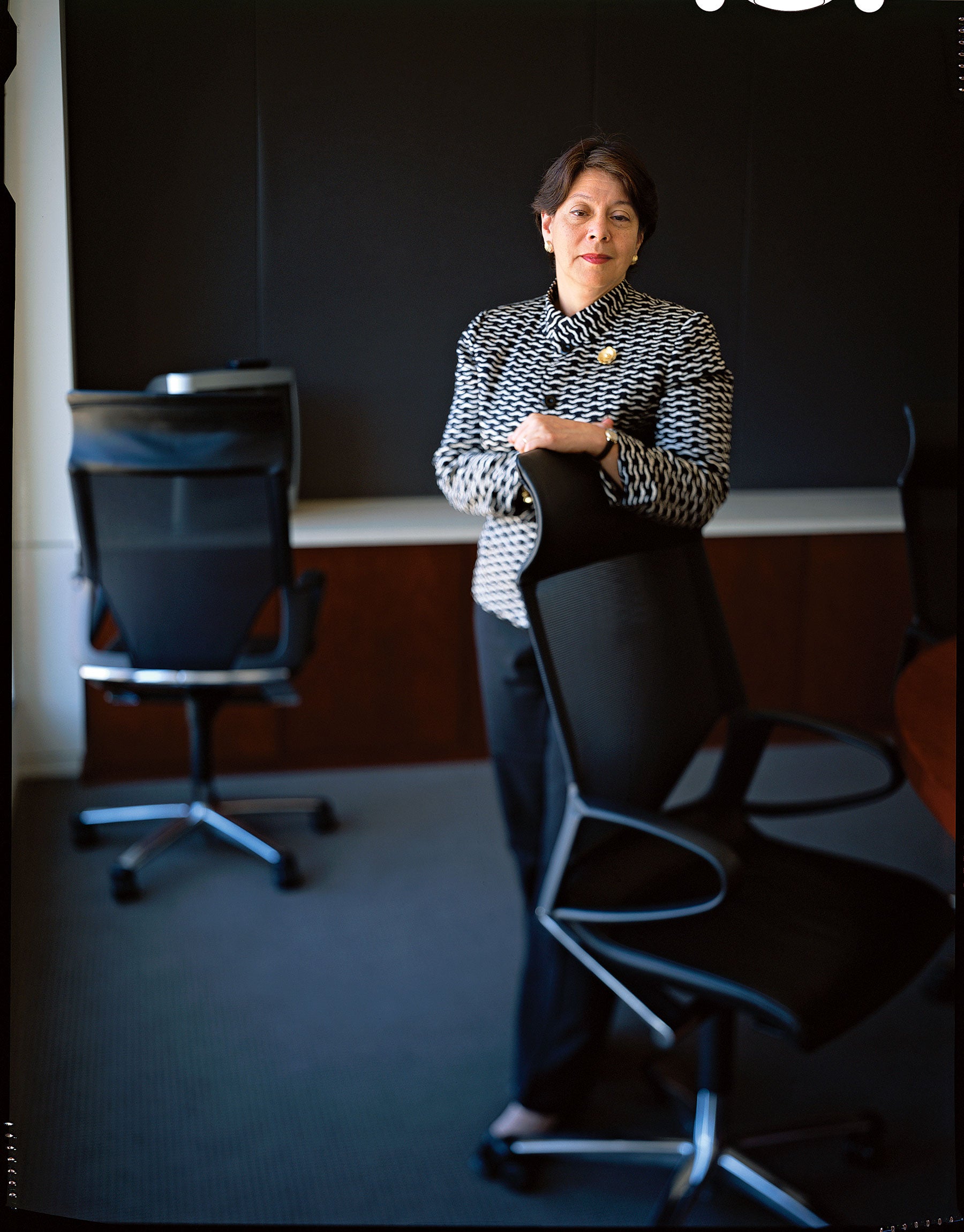For Diana Daniels ’74, life is about fairness—and balance
Diana Daniels ’74 was a Cravath, Swaine & Moore associate doing project finance in 1978 when she heard The Washington Post needed a lawyer.
At the time, Daniels had no ties to journalism and had assumed she’d wind up practicing and perhaps teaching the law of city planning, the subject of two of her post-graduate degrees.
Still, the Post certainly had an allure just four years after its Watergate coverage helped prompt President Nixon’s resignation.
“It seemed like a tremendously exciting place,” said Daniels, even if she hadn’t yet seen Robert Redford and Dustin Hoffman portray the Post’s star reporters Bob Woodward and Carl Bernstein in the 1976 movie “All the President’s Men.”
So Daniels applied for the job and soon found herself in the Post’s fifth-floor newsroom advising the likes of Woodward and legendary editor Ben Bradlee about what was legally fit to print.
“Fortunately, they were all extremely patient as I was learning on the job the role of advising on First Amendment matters,” Daniels said.
Almost three decades later, Daniels remains with The Washington Post Co., though these days she sees less of the Post’s journalists in her current position as vice president, general counsel and corporate secretary.
She works four floors above the newsroom in the executive suite, past the portrait of Eugene Meyer, who bought the Post in 1933, and those of his daughter and son-in-law, Katharine and Philip Graham.
The number of lawyers she oversees has expanded along with the company, as the Post acquired several television and cable systems as well as Kaplan Test Prep.
Today, more of the company’s revenues come from Kaplan than its flagship newspaper or magazine, Newsweek, where Daniels served as general counsel for eight years. Like print media outlets nationwide, both are having to deal with shrinking circulation and competition for ad dollars from the Internet.
“Every major newspaper company in the country is engaged in trying to figure out how the next few years are going to play out—what happens with the Internet, where advertising goes,” Daniels said.
But only a few hours after she voiced those concerns in April, she went down to the newsroom to celebrate the four Pulitzer Prizes the Post won that day—the most of any single newspaper this year.
Daniels admits it took some time to get used to having journalists as her clients. “Reporters are very opinionated,” she said. “All of them are frustrated lawyers. They like to argue, do research, investigate—all the qualities lawyers have.”
She also had to adjust to the unique challenges of a newsroom.
Like the time a criminal suspect wandered into the newsroom hoping to turn himself over to the police in front of reporters. Only later did he show his gun. She’s also had to fight boxer Willie Pepp—or at least the libel suit he filed.
Daniels is an equally committed supporter of journalists beyond the Post. As the current president of the Inter American Press Association, she travels throughout Central and South America advocating freedom of the press.
Daniels has also served as chairwoman of the board of the Appleseed Foundation, which she describes as a great way for nonlitigators to get involved in pro bono work. And she is a vice chairwoman of the board of trustees of Cornell University, where she went to college and this year headed a search that selected its newest president.
“I’m happiest when I’m very busy,” she said.
Yet, as a single mother, Daniels carves out time to watch her daughters, Daphne, age 7, and Dana, age 11, play soccer on weekends, and she checks their math homework, even if it’s via e-mail.
“How she does all this stuff and performs so well is a mystery to me,” said Linda Singer ’91, executive director of the Appleseed Foundation. “I do my own share of juggling, with two kids myself, and whenever I think it’s really hard, I think, Diana does it—it’s got to be possible.”
